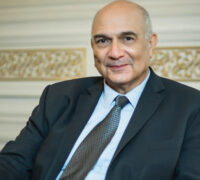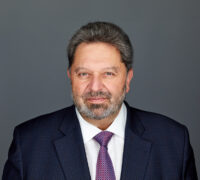When he asked why, they laughed and told him some of his predecessors had refused to go. “And this was a key moment I think in terms of trust,” he said. “So these colleagues have a way to test sincerity and trust, and this was also another key moment for building that alchemy.”
Later, during the 2008 financial crisis, Terrab was confronted with a tangible sign of this trust. The market for phosphate had collapsed, and lacking space to store stock, OCP decided it would have to shut down some of its production. When he spoke to the managers of the mines, he was told that workers would go on strike if this happened. He then spoke to one of the workers who said they would trust him if Terrab believed it was strategically the right thing to do.
“Can you imagine the strength that people like this can give you in terms of the trust they are putting in you and that you can put into them?” he said.
Taking on the next challenge
With the first stage of OCP’s transformation complete, Terrab has now turned his attention to accelerating the lowering of the company’s environmental footprint. OCP has announced plans to invest $13bn in renewable energy and green hydrogen with the aim to be carbon neutral by 2040.
Terrab also sees OCP playing a role in global food security. “Without fertilizer, we could only feed half of the world’s population,” he said. As arable land per capita decreases globally because of population growth, Terrab notes that 60% of the world’s unused arable land lies in Africa. “We have to find ways to make Africa contribute positively to global food security. In the meantime, we have to also contribute to Africa’s food security.”
OCP is deploying machine-learning algorithms to help it produce fertilizers that are customizable to crop conditions and farmers’ individual needs. This means they are cheaper to produce and without damaging the environment because the nutrients are fully absorbed by the soil and plants and don’t get into the water table.
Terrab describes soil as the planet’s “most underestimated asset”, which could be a new weapon in the fight against climate change if agricultural practices become more regenerative. “We have estimates that soil, if treated correctly, can sequester twice the amount [of CO2] that we emit, every year on the planet!”
After 17 years at the helm, it’s clear that Terrab still remains just as excited about OCP’s future.
“Being in this constant discovery phase, that’s what keeps me going,” he said. “For me, it’s not the same job. What I’m doing today is very different from what I was doing four years ago. And the fulfillment comes from seeing colleagues grow and have that spark in their eyes that you can see here and there. That’s an amazing fuel for life.”
YouTube

 Podcast available
Podcast available

 Podcast available
Podcast available